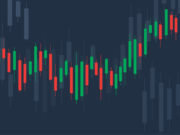The right stocks can make you rich and change your life.
The wrong stocks, though… They can do a whole lot more than just “underperform.” If only! They can eviscerate your wealth, bleeding out your hard-won profits.
They’re pure portfolio poison.
Surprisingly, not many investors want to talk about this. You certainly don’t hear about the danger in the mainstream media – until it’s too late.
That’s not to suggest they’re obscure companies – some of the “toxic stocks” I’m going to name for you are in fact regularly in the headlines for other reasons, often in glowing terms.
I’m going to run down the list and give you the chance to learn the names of three companies I think everyone should own instead.
But first, if you own any or all of these “toxic stocks,” sell them today…
Lucid Motors (LCID) – Time to Lock in Gains
Lucid Motors, known for its sleek electric vehicles, has seen its shares climb an impressive 48% over the past six months. Despite this rally, spurred by increased deliveries and strong backing from Saudi Arabia’s Public Investment Fund, the fundamentals suggest caution is warranted.
Recent reports show Lucid delivered a record 2,394 EVs in the second quarter after implementing significant price cuts, marking a 70% increase in deliveries. However, when we dig deeper into the financials, the picture becomes less optimistic. Lucid trades at a lofty 15.2x sales, nearly double that of industry leader Tesla and almost five times higher than Rivian.
The valuation becomes even harder to justify considering Lucid’s distance from profitability. With a five-year net income CAGR of -31% and the lowest gross margins among American EV makers, Lucid faces a steep path to financial health. The disparity in scale is stark when compared to Tesla, which delivered 444,000 EVs in its most recent quarter against Lucid’s 2,394.
While Lucid’s recent performance might tempt investors to hold on for more growth, the current stock price may not be sustainable given the underlying financial challenges and the massive capex required to scale operations. Now may be the right time to sell LCID and secure any gains from the recent price surge, especially for those looking to manage risk in a volatile sector.
This sell alert highlights the need for a strategic reassessment of Lucid’s position in your portfolio, considering the broader market dynamics and Lucid’s operational realities.
SunPower (SPWR) – Time to Consider Exiting
SunPower, a prominent player in the solar panel industry, has seen its market value plummet by 75% over the past year, a decline sharply felt across the sector due to dwindling residential installations. The high cost of new solar panel installations, exacerbated by persistent high interest rates, makes SunPower’s financial outlook increasingly precarious.
However, the challenges don’t stop at market conditions. SunPower is currently grappling with significant internal turmoil. The company has been in the process of restating financials for the past two years, a red flag that signals deeper issues in financial management and oversight. This situation took a more dramatic turn with the recent dismissals of both the CEO and the chief operating officer, underscoring instability at the executive level.
Adding to the company’s woes, its auditor, Ernst & Young, has decided to step back, citing concerns that prevent them from associating with SunPower’s financial statements. This move by a respected auditor is particularly alarming, as it suggests serious misgivings about the company’s financial reporting practices.
Given these myriad issues—from the structural challenges in the solar industry and adverse market conditions to internal management upheaval and auditing concerns—holding SunPower’s stock becomes increasingly risky. With no immediate resolution in sight and potential ongoing inflation, now might be the prudent time to sell SPWR shares and secure any remaining value before further declines.
Chewy (CHWY) – Time to Reevaluate Amid Volatility
Chewy has experienced a tumultuous period in the stock market, initially spurred by speculative interest but now facing a steep decline. After a surprising 34% surge last week, influenced by meme stock icon Keith Gill’s (aka “Roaring Kitty”) cryptic social media posts, Chewy’s stock momentum has reversed sharply. The decline began when it was confirmed that Gill had acquired a significant 6.6% stake in the company, investing approximately $250 million.
While this move initially fueled investor excitement, the subsequent downturn reflects growing concerns over Chewy’s financial stability and the speculative nature of its recent price movements. Long-term, value-focused investors are particularly wary, given the company’s less-than-ideal financial outlook.
Chewy’s story might seem appealing to those betting on a turnaround, especially with leadership from figures like Ryan Cohen, known for his role in reviving struggling companies. However, the current market dynamics suggest that holding onto CHWY shares could be increasingly risky.
Given the volatile nature of Chewy’s recent stock performance and the speculative reasons behind the movements, it may be wise for investors to consider securing any gains or cutting losses. Speculating on such uncertain grounds could lead to significant financial setbacks. Therefore, for those looking for stability and long-term growth, Chewy might currently be a stock to sell.











